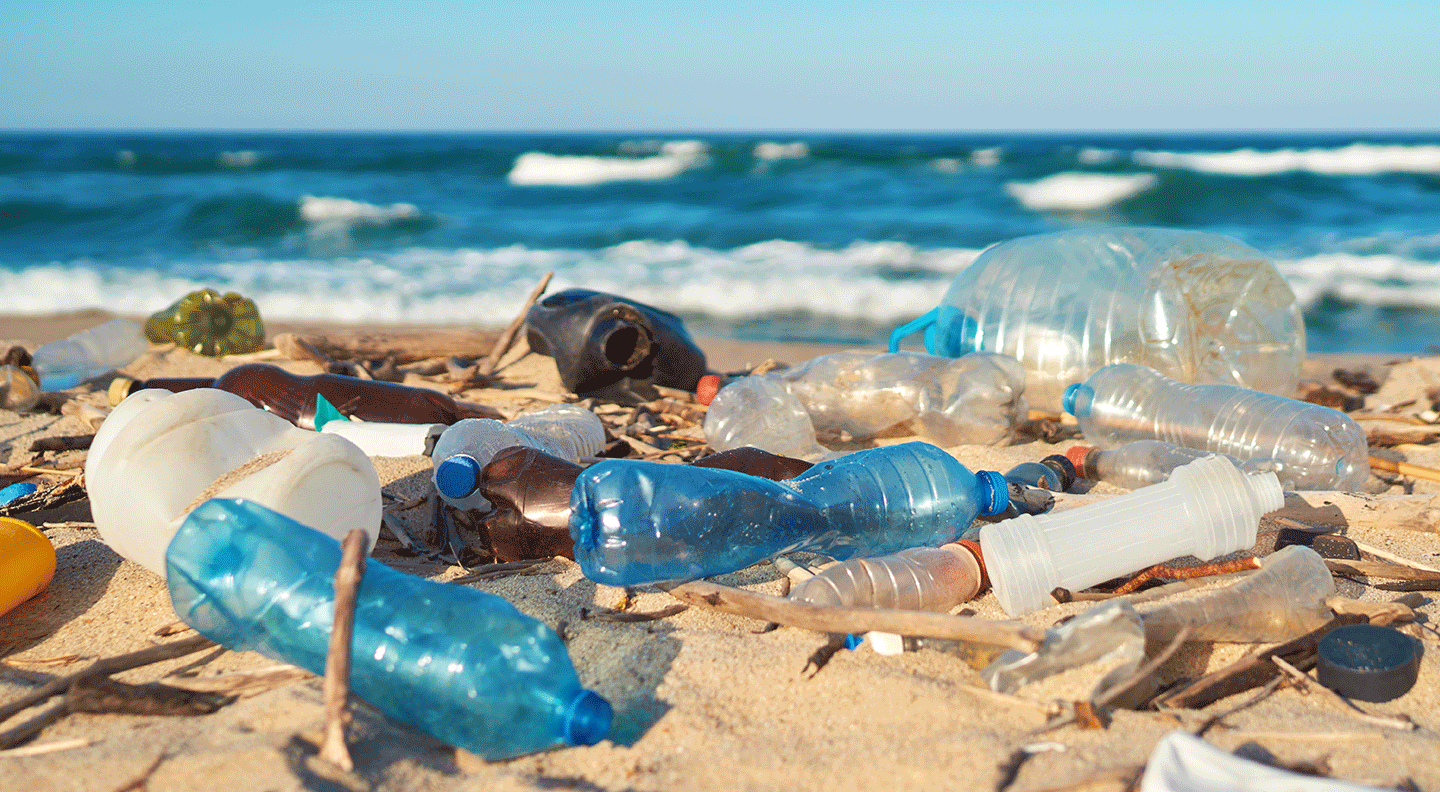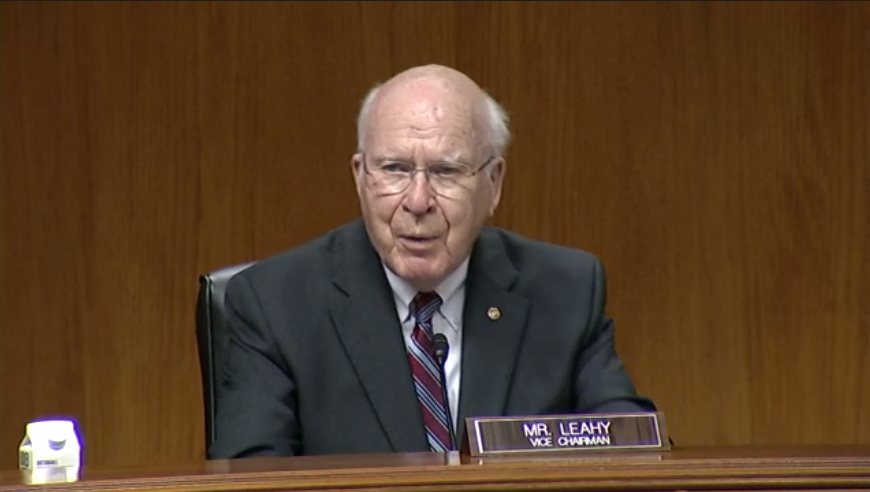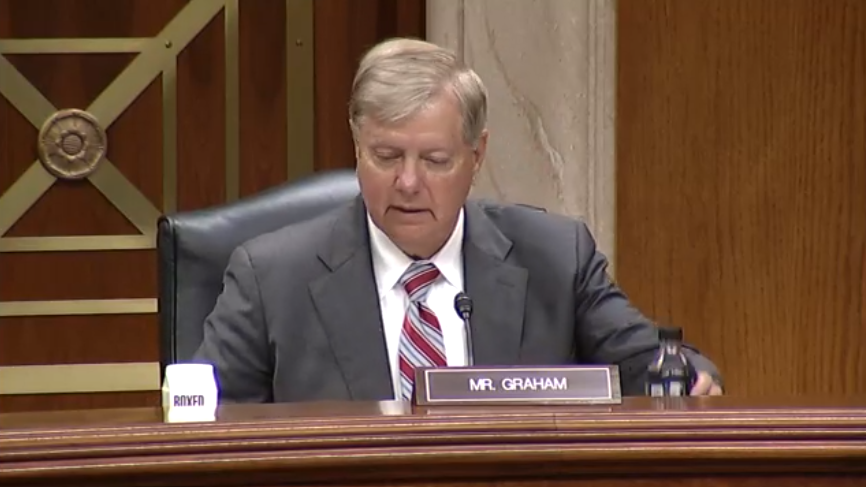Written By: Patricia Whiting, Sr. International Policy Analyst for Sims Lifecycle Services
U.S. Senate Subcommittee on State, Foreign Relations, and Special Projects holds Hearing to review U.S. Efforts to Address Ocean Plastic Pollution
Background
Plastic ocean pollution is an emerging issue, widely covered by the media and increasingly the focus of public policy initiatives aimed at its mitigation and reduction at all levels – local, state, national, regional and international. Plastic debris is the main source of shoreline pollution on all six continents including remote islands, and in the most distant parts of the Arctic and Antarctic oceans. Plastics have also been detected from the deep sea on the sea floor.
These plastic fragments will persist for decades and possibly centuries, due to their high resistance to the natural degradation process in an aquatic environment. Adverse effects range from marine organisms and biodiversity, to human livelihood and the economy (decreased fish stocks and high cost of cleanup) and pose major concerns about the accumulation in the food chain.
U.S. Senate Subcommittee Hearing
The U.S. Senate Subcommittee on State, Foreign Relations, and Related Programs (Foreign Relations Subcommittee), chaired by majority leader Senator Lindsay Graham and co-chaired by minority ranking leader Senator Patrick Leahy, held a hearing on July 21, 2020 to review U.S. efforts to address plastic ocean pollution. Expert testimony was provided by,
- Senator Dan Sullivan (R-AK) and Sheldon Whitehouse (D-RI);
- Jonathan Moore, Principal Deputy Assistant Secretary, Bureau of Oceans and International Environmental and Scientific Affairs, U.S. Department of State; and
- Michelle Bickering, Assistant Administrator of the Bureau for Economic Growth, Education and Environment, U.S. Agency for International Development (USAID).
Each of the witnesses at the Hearing described various initiatives being undertaken by the United States to combat ocean plastic including draft legislation; bilateral efforts; a public-private capital investment partnership; the World Bank Pro-Blue Fund and the consequences of U.S. lack of participation in multilateral, environmental and trade agreements.
Based upon information gleaned from the witnesses in this session, Graham concluded that the United States needs to ramp up our participation on the international level, and provide more resources to fund bilateral efforts being conducted by USAID.
Legislation
In terms of the expert testimony, Senators Sullivan and Whitehouse discussed draft legislation that they recently introduced with Bob Menendez (D-NJ). Save our Seas 2.0, is aimed at cleaning up the marine debris crisis affecting America’s oceans, shorelines and inland waterways, as well as other coasts across the globe. The legislation also aspires to address the plastics issue on a global scale through international engagement and the exploration of new agreements, including trade deals. The draft bill was passed by the Senate in January and still must pass through the House to be enacted. It specifically attempts to:
- help reduce the creation of plastic waste
- find uses for existing plastic waste to prevent it from entering the oceans; and
- spur innovation into new technologies and ocean-friendly products.
Sullivan explained that the new bill entails four key components:
- domestic clean up
- domestic prevention
- enhanced international management
- closing of information gaps through scientific studies.
Bilateral Engagement
Bekkering discussed bilateral efforts being undertaken by USAID focused on South-East Asia, as well as a public-private partnership USAID launched with Circulate Capital to assist developing countries in dealing with plastic waste.
With regards to South-East Asia, Bekkering discussed the recent launch of USAID’s global flagship program Clean Cities, Blue Ocean (CCBO) in Vietnam to support rapidly urbanizing cities and communities in turning the tide of ocean waste. Vietnam stands as the third largest per capita producer of plastic waste, just behind Thailand and Malaysia. Like other coastal and small island developing countries, Vietnam’s urban waste management system has struggled to keep up with managing these increasing quantities. This has resulted in an influx of plastic and other waste into inland rivers and lakes, and along Vietnam’s long coastline.
CCBO is a 5-year global program (2019-2024) that offers state-of-the-art international technical expertise and implements sustainable, locally-led solutions through its local grants program.
Bekkering also outlined the public-private partnership USAID has entered with impact-investment firm Circulate Capital, making significant commitments to attract private capital and the development of new businesses in South and Southeast Asia. USAID announced a $35 million, 50-percent loan portfolio guarantee with Circulate Capital that will help mobilize outside private investment to combat plastic pollution in oceans throughout the Indo-Pacific region. The partial-loan guarantee from USAID is a tool designed to attract private capital to a blended finance fund, and offer protection to investors by lowering the downside risk of loss. This makes investment in developing markets more appealing. The initiative already has secured more than $100 million in private-sector commitments from the world’s leading businesses.
Circulate Capital will invest the portfolio in companies, innovations, and infrastructure projects that will strengthen recycling and waste management systems – central to reducing and mitigating the effects of marine debris in oceans. The assistance will also create new business opportunities, incubate marketplaces, and empower women entrepreneurs in the environmental field.
International Initiatives
Moore provided information on a new multi-donor trust fund, PROBLUE. PROBLUE is housed at the World Bank and supports development of integrated, sustainable and healthy marine and coastal resources. It is also part of the World Bank’s overall blue economy program, which is worth around $5.6 billion in active projects as of March 2020.
PROBLUE focuses on four key areas:
- The management of sustainable fisheries and aquaculture
- Addressing threats posed to the ocean by marine pollution, including litter and plastics, from marine or land-based sources;
- The sustainable development of key oceanic sectors such as tourism, maritime transport and offshore renewable energy; and
- Building government capacity to manage marine resources including nature-based infrastructure, such as mangroves, in an integrated way to deliver more and long-lasting benefits to countries and communities
Moore also discussed some recent decisions taken by the Parties (187) to the Basel Convention, addressing the management and transboundary movement of plastic ocean waste. The United States is the only country in the world, absent Haiti, that is not a Basel Party. Moore noted that because the United States did not have a proper seat at the table when the plastics decisions were negotiated, the United States was unable to persuade the Parties to take a more measured approach to addressing the issue. The result was therefore unfavorable to U.S. legitimate trade in plastics recyclables.
Conclusion
Graham responded to Moore’s testimony concerning the U.S. non-Basel Party status, by tasking the State Department with follow-up information concerning why the United States has not joined the Basel Convention since it was adopted almost 30 years ago.
In Graham’s words, “The United States has to join something!” Graham also openly pondered which vehicle would benefit most from U.S. resources in terms of effectively addressing ocean plastic waste, the Preblues Fund, or a Fund established at USAID. Graham seemed to conclude a preference to increase and potentially double the current $12 million currently allocated to USAID for ocean plastics waste issues.
In closing, Sims continues to focus on the issue of plastic waste and ocean litter, as we promote sustainable plastic waste management in our core business and maintain our broader corporate responsibility as environmental stewards.


